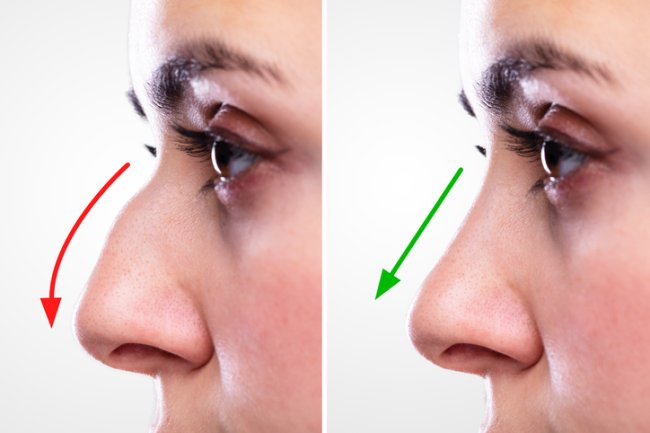Kidney infection: Symptoms , causes & Treatment
Most kidney infections are caused by an infection of the urinary tract. This can spread to either one or both of your kidneys.

What's a kidney infection?
Most kidney infections are caused by an infection of the urinary tract. This can spread to either one or both of your kidneys. Kidney infections can occur suddenly or over time. These infections can be very painful and potentially life-threatening. A kidney infection is called pyelonephritis.
Symptoms
Symptoms of kidney disease usually show up two days after the infection. Your age may affect the severity of your symptoms. Common symptoms are:
- Pain in the side, abdomen, back, groin or side
- nausea or vomiting
- Frequent urination, or feeling like you need to urinate
- Urinating can cause burning or pain
- Pus or blood in your urine
- Bad-smelling or cloudy urine
- Chills
- Fièvre
A kidney infection in children under 2 may cause a mild fever. For people over 65, problems such as mental confusion or jumbled speech may be the only ones.
Sepsis can occur if the infection isn't treated quickly. This could be fatal. Sepsis can be characterized by:
- Fièvre
- Chills
- Rapid breathing and rapid heart beat
- Rash
- There is confusion
Causes
Two kidneys of fist size are located in your upper abdomen. One on each side. They remove waste products from your blood and put them into your urine. They regulate your blood's water and electrolytes. Your health is dependent on kidney function.
Most kidney infections are caused either by bacteria or viruses that have entered the kidneys through the urinary tract. A common bacterial cause is Escherichia coli (E. coli). These bacteria can be found in your intestines and can reach the urinary tract via the urethra. The tube that transports urine from your body is called the urethra. The bacteria spreads from there to the bladder, kidneys and other parts of the body.
The following are other causes of kidney infection that are less common:
- Bacteria from an infection elsewhere in your body (e.g. artificial joints) that spreads through the bloodstream to your kidneys
- Surgery of the bladder and kidneys
- You may have a blocked urine flow from a tumor or kidney stone in your bladder, an enlarged prostate (in men), or a problem in the shape or function of your urinary system.
Risk factors
A kidney infection can happen to anyone. But there are certain factors that increase the likelihood of it happening:
- Urinary tract infections, or UTIs (urinary tract infections) can lead to kidney disease in about 1 in 30 cases.
- Being a woman., Because the urethra in women is smaller than it is for men, they are more susceptible to kidney infections. This makes it easier to allow bacteria to enter the urinary tract. The urethra of women is also closer to the anus and vagina, making it easier for bacteria to reach the urinary tract.
- Pregnancy. It is possible for bacteria to enter the kidneys through a shift in the urinary tract during pregnancy.
- A weak immune system. These include people with diabetes, HIV, or AIDS and people who take drugs that suppress the immune response.
- Spinal cord damage or nerve damage to bladder. This could prevent you from being able to recognize signs of a UTI, which can lead to kidney infection.
- A problem with emptying your bladder completely. Also known as urinary retention. This can also happen in multiple sclerosis sufferers or spina bifida.
- Urine backup. This happens when your urine backs-up to one or both your kidneys instead of the normal outflow. This is known as vesicoureteral acid reflux and most common in children TrustedSource.
- Cystoscope is an instrument that examines the bladder.
Incidence
The incidence of kidney infection is not well-known. Trusted Source found that there were between 12 and 13 outpatient cases for females and 3-4 inpatient cases for every 10,000. Males had 1-2 outpatient cases per 10,000 and 1-2 inpatient. Young women had the highest rates, followed by infants and older adults.
See your doctor
Consult your doctor if you have bloody urine, or suspect that you may have a kidney infection. If you are experiencing symptoms that don't improve with treatment for a UTI, you should see your doctor.
Diagnosis
Your doctor will ask questions about your medical history, symptoms, and other pertinent information. Your doctor will ask you about your medical history and perform a physical exam.
The doctor might use the following tests:
- A rectal examination for males. This is done to determine if the prostate has enlarged and blocked the bladder neck.
- Urinalysis. Under a microscope, a urine sample will be tested for bacteria and white blood cells. This is what your body makes to fight infection.
- Urine culture. To determine which bacteria grows, a urine sample will need to be taken.
- A CT scan, MRI or ultrasound test. These images show your kidneys.
Treatment
The severity of your kidney infection will determine the treatment you need.
Oral antibiotics can be used if the infection is not severe. Your doctor will give you antibiotic pills to take home. Once your results from your urine tests reveal that you have a bacterial infection, the type of antibiotic you are prescribed may change.
You will usually need to continue with antibiotics for at least two weeks. To ensure that the infection has gone, your doctor may order follow-up urine cultures. You may need to continue your treatment.
Your doctor might refer you to the hospital if you have a more severe infection.
Sometimes, surgery is necessary to fix a problem or blockage in your urinary system. This will prevent you from developing new kidney infections.
Recovery
Within a few days, you should feel much better. To ensure that your infection doesn’t come back, make sure you finish all prescribed antibiotics. Two weeks is the usual duration of antibiotics.
UTIs can increase your risk of developing future kidney infections.
To ease the discomfort caused by the infection
- To reduce pain, heat a heating pad on your stomach and back.
- You can also take over-the-counter pain medication (OTC), such as Tylenol (acetaminophen). If OTC medication doesn't work, your doctor may prescribe pain medication.
- Aim to drink 6-8 8-ounce glasses of water per day. This will flush out bacteria from your urinary tract. You might feel more compelled to urinate if you drink coffee or alcohol.
Complications
Neglecting to treat your infection can lead to serious complications.
- Your kidneys may be permanently damaged, which can lead to chronic kidney disease and, rarely, even kidney failure.
- Your bloodstream could be poisoned by bacteria from your kidneys, which can lead to life-threatening sepsis.
- High blood pressure or renal scarring can occur, but it is very rare.
Pregnancy with a kidney infection can increase the chance of your baby being low-weight.
What's Your Reaction?

















